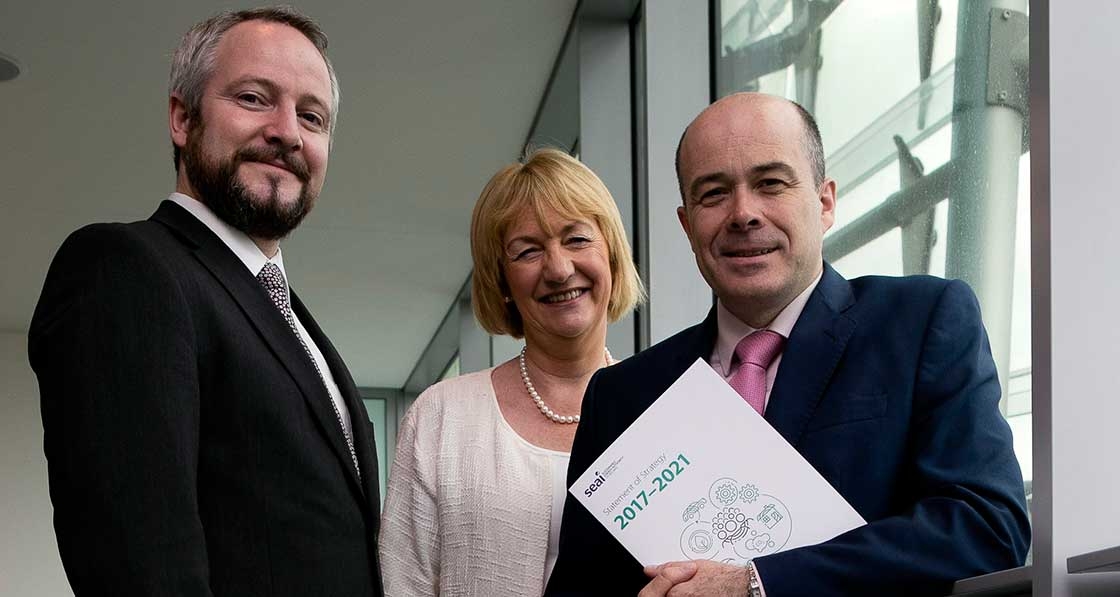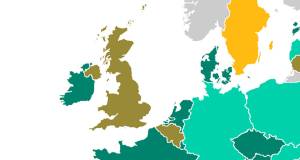
- Government
- Posted
Government announces suite of retrofit grants
This article was originally published in issue 24 of Passive House Plus magazine. Want immediate access to all back issues and exclusive extra content? Click here to subscribe for as little as €10, or click here to receive the next issue free of charge
The government has announced a major increase in the grant for external wall insulation as well as a new grant for heat pumps and the introduction of a scheme to support renewable heating systems for large-scale users, as part of a series of policy announcements.
It comes just after the Climate Change Advisory Council warned that Ireland would fail to meet its targets for reducing carbon emissions without drastic action.
The advisory council’s first annual review, published in December, states that if Ireland does not introduce major new policies and measures it will miss its 2020 targets and, on its current trajectory, will also miss the objective of reducing emissions by at least 80% by 2050.
Reacting to the report, Green Party leader Eamon Ryan said: “Once again, the government’s lack of ambition on tackling climate change and emissions is laid bare by this report. When is the government going to wake up to the situation?
A report published by the EPA at the end of 2017 also showed that Ireland’s greenhouse gas emissions had risen by more than since 7% since 2015.
“From 2020 onwards, we’re heading into some pretty major fines for not meeting our obligations,” Taoiseach Leo Varadkar told a briefing of political correspondents in January, before stressing it made more sense to pay now for policies to reduce carbon emissions, rather than pay fines later.
In October, the Oireachtas Committee on Budgetary Oversight had warned that the State could be hit with fines of up to €610 million in 2020 for failing to meet its EU climate targets.
New home energy upgrade grants Varadkar’s statement came shortly after environment minister Denis Naughten announced that under SEAI’s Better Energy Homes scheme, grants for external insulation were being increased by 33% — with up to €6,000 available per house — while a new grant of €3,500 for heat pumps will be introduced in April.
The move follows the government’s decision to run a deep retrofit pilot programme with a multi-annual commitment to a total of €21.7 million between 2017-19, starting with €5m in 2017.
The scheme, which offers up to 50% of the total capital costs and project management costs for deep retrofits to homes, and up to 95% funding for voluntary housing associations and fuel poor homes, aims to lift pre 2006 homes up to an A3 rating, with a minimum uplift of 150 kWh/m2/yr.
Meanwhile, grants for fossil fuel boilers are now being phased out, while there is an increase in the grant available for heating controls from €600 to €700, regardless of the type of heating system employed.
The Better Energy Home grants are available for properties built before 2006, and the external wall insulation grant is required to deliver a wall U-value of 0.27 or better. The rules for the new heat pump scheme remain to be finalised.
The new grant announcements follow the introduction in December of a new national support scheme for renewable heating systems for large-scale users. The scheme has a €7m budget for 2018.
The programme is designed to financially support the replacement of fossil fuel heating systems with renewable energy for large heat demand non-domestic users. This covers commercial, industrial, agricultural, district heating, public sector and other non-domestic businesses and sectors (in the non-emissions trading sector).
Under the 2009 Renewable Energy Directive, Ireland has a target of 12% of energy consumed in the heat sector to come from renewable energy sources by 2020. Currently just 6.8% of energy consumed in the heat sector is renewable.
The scheme for renewable heat will consist of two types of support: on-going grant aid — paid for a period up to 15 years — for new installations, or installations that currently use a fossil fuel heating system and convert to biomass or anaerobic digestion, and a grant of up to 30% for heat pump systems.
The maximum tariffs paid will be 5.66 cents per kilowatt-hour of energy produced from biomass heating systems and 2.95 cents per kilowatt-hour of energy produced from anaerobic digestion. The tariffs paid will reduce with increasing output, reflecting the economy of scale associated with larger systems.
The introduction of the scheme follows the ‘cash for ash’ scandal in Northern Ireland, in which recipients of a similar grant were offered potentially unlimited subsidies for biomass systems, without any cap on grants. One whistle-blower stated that in one instance, a farmer stood to make £1m over 20 years for heating an empty shed.
However, in a statement announcing the scheme, the department stated that it aimed to heed the lessons from “other jurisdictions” through various eligibility criteria and through mechanisms such as budget caps and periodic reviews for grant recipients.
The government has also announced that the Warmer Homes Scheme, which targets fuel-poor homes, is now available to those in receipt of Domiciliary Care Allowance, a monthly support payment made to the family or guardian of children under 16 with a severe disability, in addition to other social welfare payments.
The scheme offers a broad package of energy efficiency measures free to householders in need of energy efficiency upgrades worth an average of €3,000. Minister Denis Naughten also announced a new guaranteed funding commitment for community energy efficiency projects under the Better Energy Communities scheme, with €28 million worth of grants available in 2018, which is set to include “a transition away from fossil fuel support”. In 2017, the Better Energy Communities scheme started to place an increasing emphasis on deep retrofit measures






